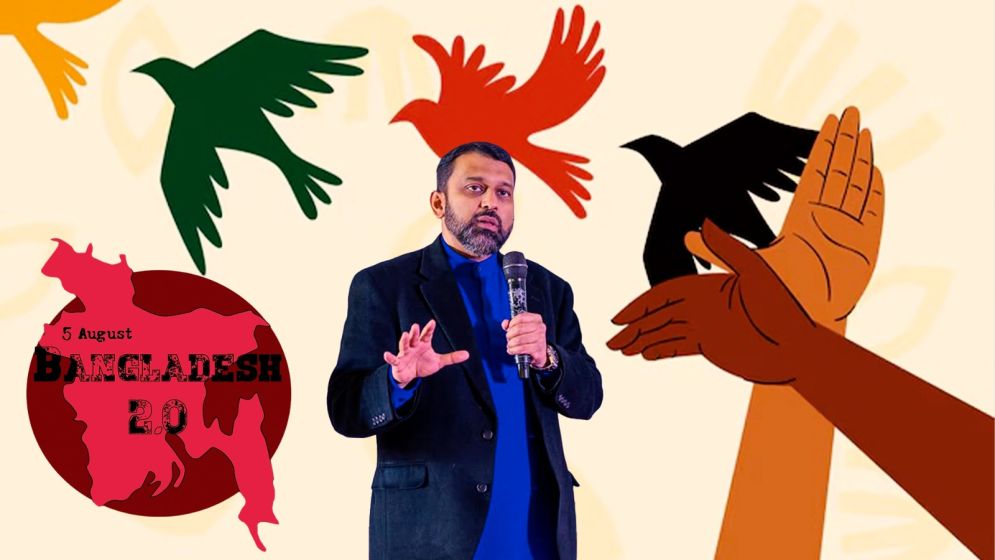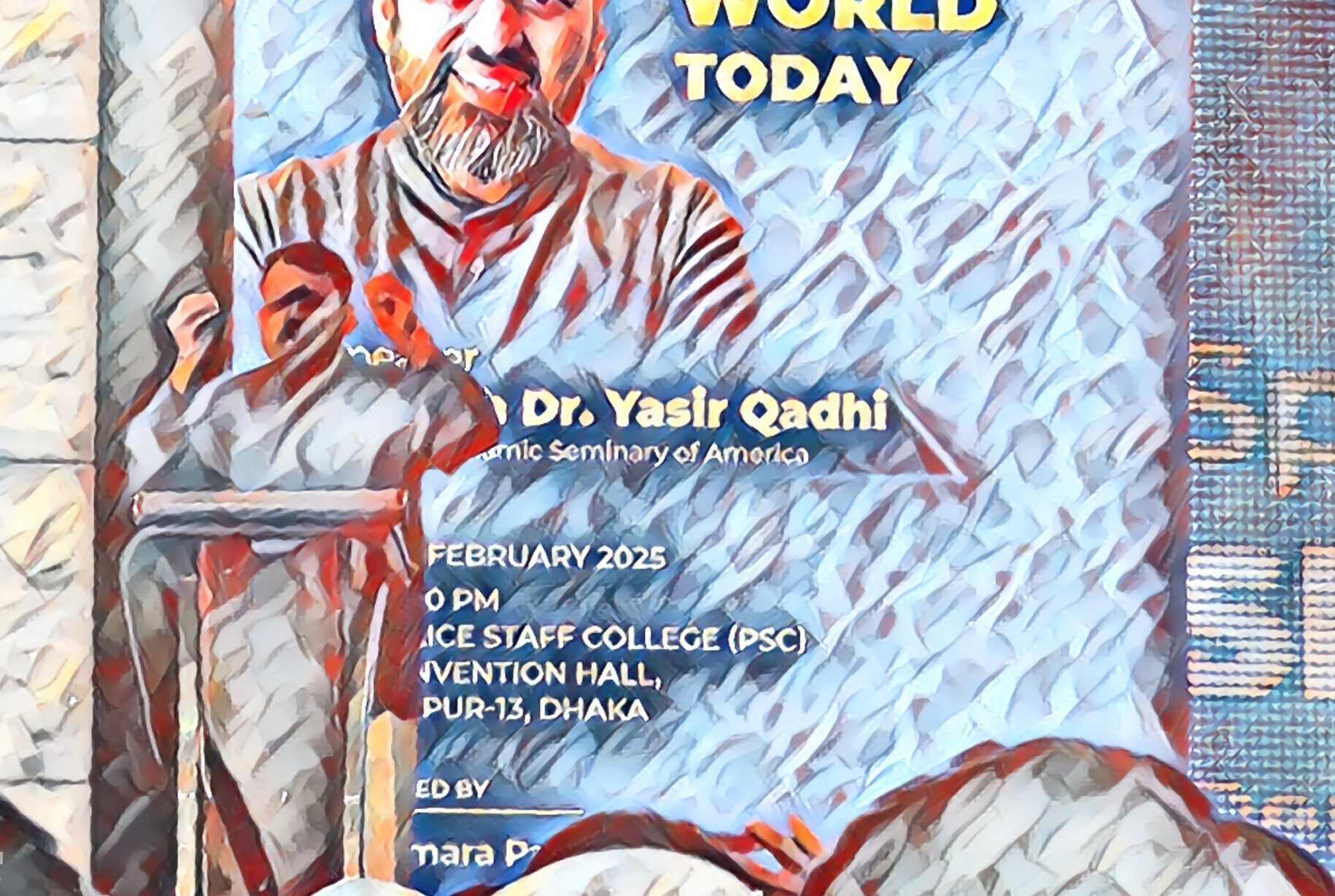Yasir Qadhi calls for unity in Bangladesh after July uprising at first Dhaka lecture

In his inaugural visit to Bangladesh, prominent American Islamic scholar and theologian Yasir Qadhi called for unity among the country’s people, urging them to resist internal and external forces aiming to disrupt the nation’s hard-won political freedoms.
Speaking to a captivated audience in Dhaka on Thursday, Qadhi, known for his influential work in Islamic education, warned against “local” and “neighbouring” forces that seek to sow division and undermine Bangladesh’s political sovereignty.
His remarks were part of a series of lectures scheduled across the country during his visit.
“The real enemy right now are those that don’t want to see freedom in your country,” Qadhi said, addressing a mix of students, scholars, and community members.
While his talk primarily focused on the broader themes of Islam, it was during a Q&A session that he spoke passionately about his hopes for Bangladesh’s future.
Qadhi cautioned against the dangers of division, particularly among the country’s Muslim population. He argued that internal strife and theological disputes only served the interests of those who wished to suppress Islam and the nation’s sovereignty.
“If you are going to divide yourselves over petty issues, if you are going to fight over trivial matters, then there are those who do not want to see Allah’s religion flourish,” he asserted.
“There are local entities, political entities, and neighboring forces that do not want to see the sunnah [ways] of the Prophet (Sallallahu Alayhi Wa Sallam) [peace and blessings be upon him] emerge in this land.”
In his call for solidarity, Qadhi urged the Bangladeshi people to rise above theological, legal, and political differences, emphasizing the shared values that unite them as Muslims.
“You are one Ummah despite your differences,” he said. “You are one people, regardless of abstract theological or legal issues. The core question is simple: Do you love Allah? Yes. Then you are one. Do you follow the Prophet (Sallallahu Alayhi Wa Sallam) [peace and blessings be upon him]? Yes. Then you are one.”
Qadhi also stressed the importance of resolving disagreements with wisdom and in a manner that fosters unity, while keeping the larger picture in mind.

“Anybody
who loves the Prophet (Sallallahu Alayhi Wa Sallam) [peace and blessings be
upon him] is your brother in Islam. All differences should be handled
internally, sensibly, and wisely.”
“But I’m not saying everyone is the same. What I am saying is that the real enemy is not each other. The real enemy is those who are bombing Gaza. Those are the real enemies,” he said, referencing the ongoing conflicts in the Middle East.
In his message to Bangladeshis, Qadhi made it clear that while internal disagreements may arise, they must never overshadow the larger threats to the country’s peace and freedom.
“The real enemy right now are those that don’t want to see freedom in your country,” he concluded. “Those are the real enemies.”
Qadhi is visiting Bangladesh following the July-August 2024 student-led uprising that led to the ousting of Prime Minister Sheikh Hasina, bringing an end to her 15-year rule marked by severe repression of political freedoms.
The protests, which initially centered around demands for reforms in the government’s job recruitment system, quickly escalated into a nationwide call for Hasina’s resignation after her government responded with violent crackdowns.
The harsh measures taken by her administration led to the deaths of at least 1,400 people, mostly from police shootings.
On August 5, Hasina resigned and fled to neighboring India, which had long been a strong supporter of her regime through three contested elections and its dismal human rights record over the past 15 years.
A recent UN inquiry suggested that the Hasina government’s response to the July-August protests could potentially constitute “crimes against humanity.”
During her tenure, the Bangladeshi government had vowed that popular Indian Islamic preacher Zakir Naik would “never gain access to Bangladesh,” following an investigation by Indian authorities that leveled terrorism charges against him.
Hasina’s Awami League government also banned Naik’s Peace TV channel, sparking anger in the Muslim-majority country and contributing to the widespread perception that the regime sought to marginalize mainstream Islam.
In his opening remarks, Qadhi reflected on the long wait to visit Bangladesh, sharing with the audience, “I waited 15 years to come to Bangladesh. That wait is finally over.”
—

